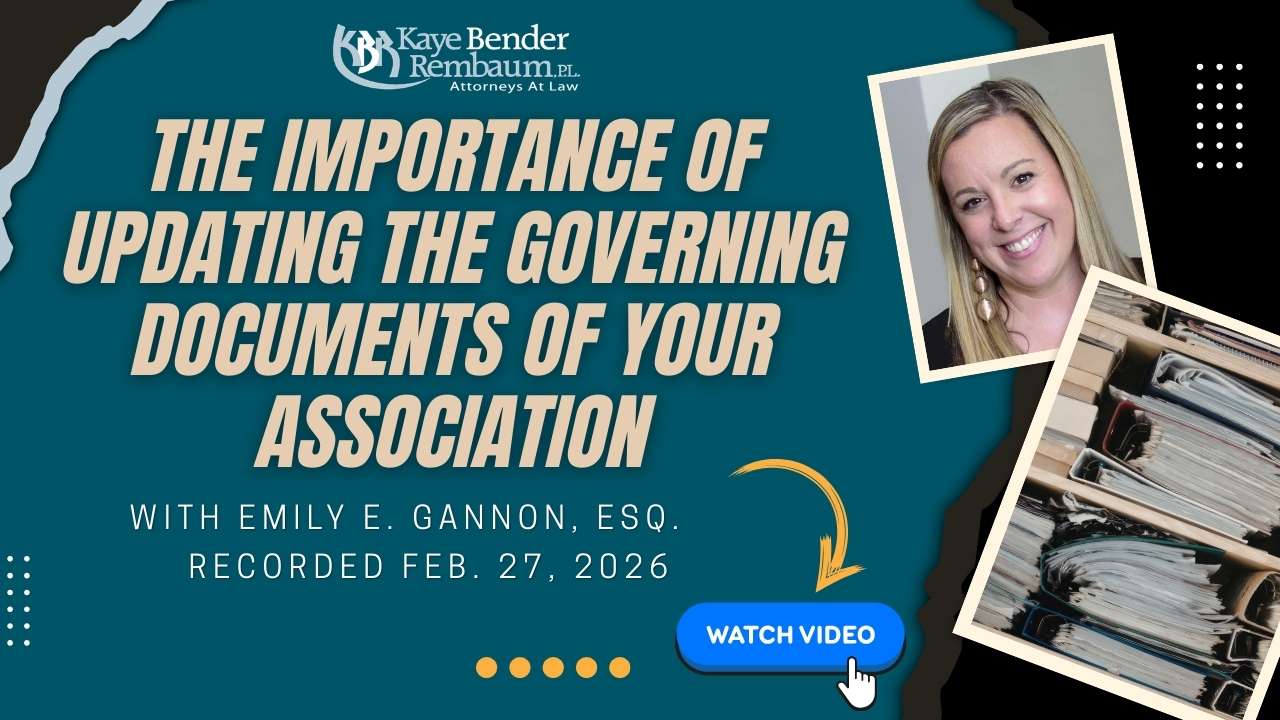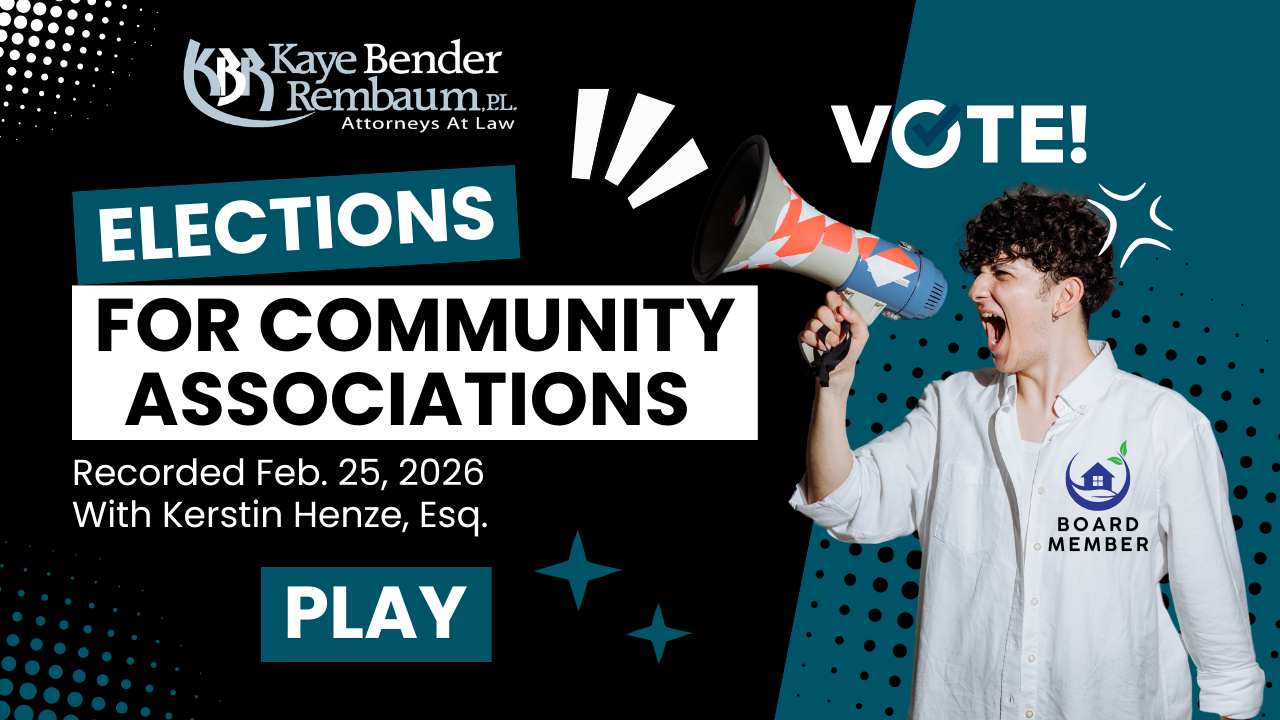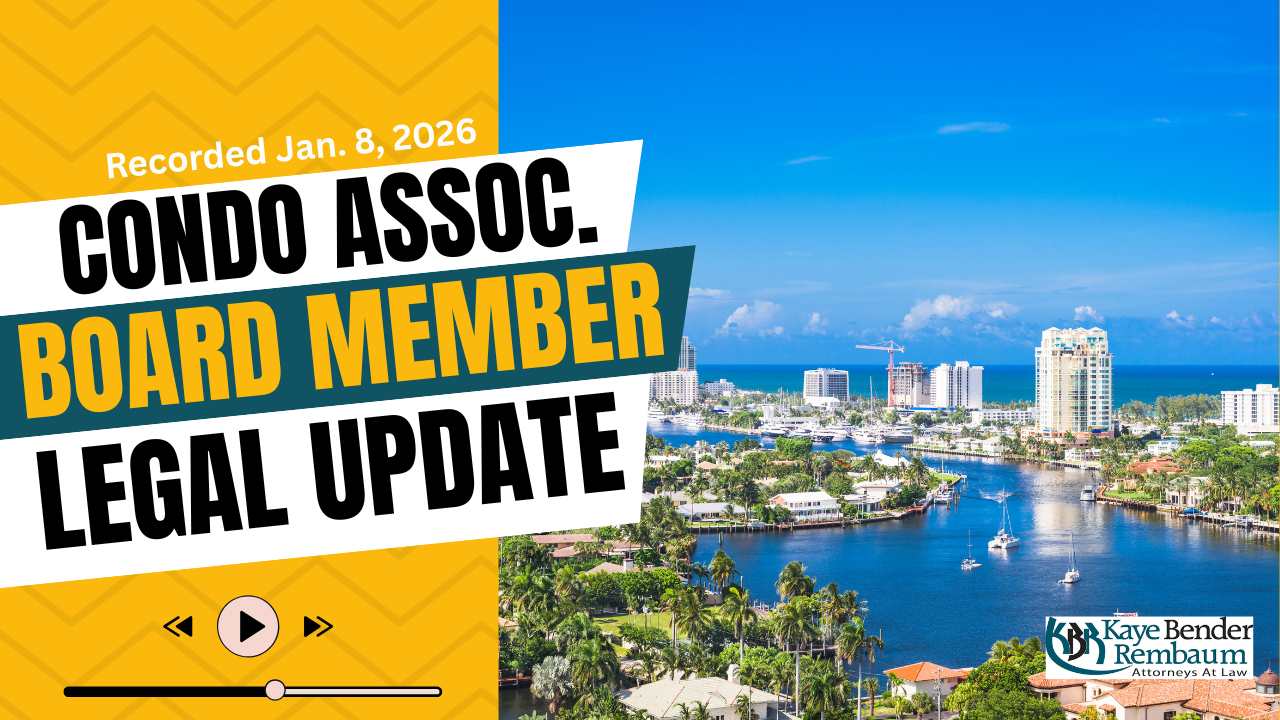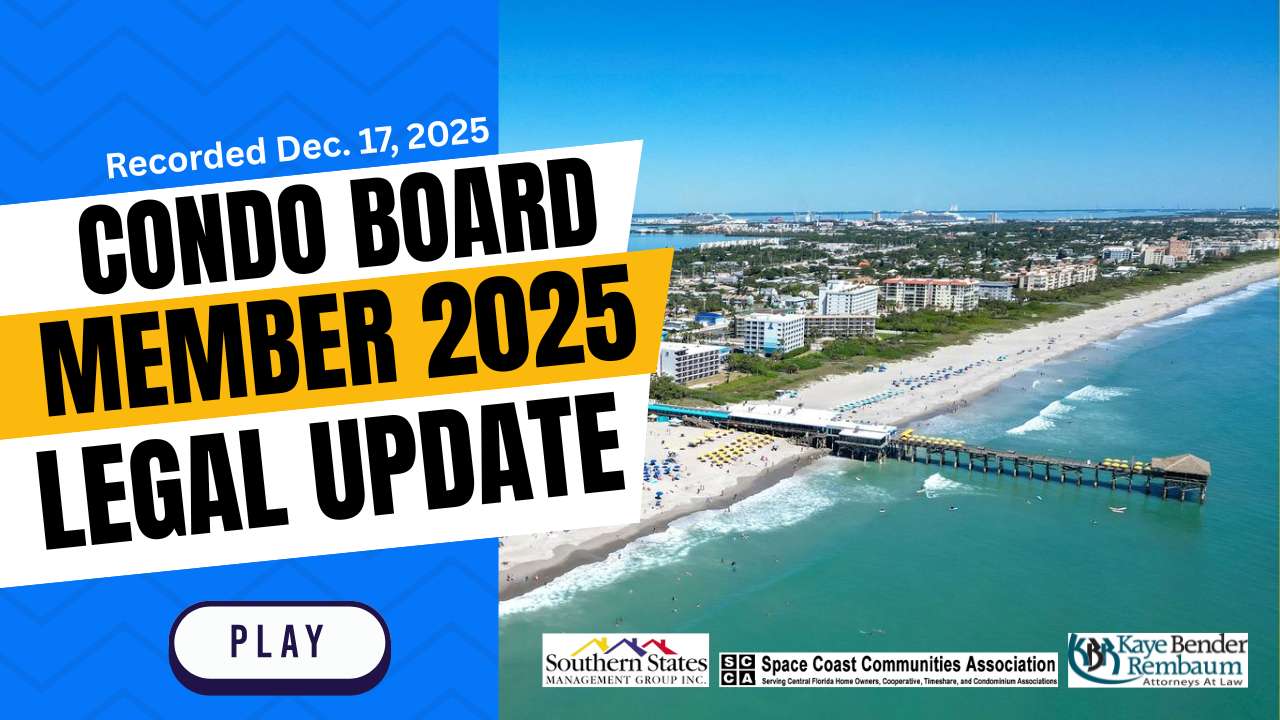*Read Before Viewing* | This recorded video WILL NOT satisfy Florida state certification requirements for Board Members, NOR will this recorded version offer CEUs for CAMS or Board Members. It is for informational purposes only and is not to be considered as legal advice. Should you have any questions, contact your association counsel.
Statutory changes and case law decisions greatly impact the interpretation, enforceability and legal effect of the governing documents of a community association. Antiquated documents can create liability exposure to the association and its members. Old provisions may hinder association operations, leaving community associations without the rights and remedies it needs to property govern the community. Learn about common pitfalls in older governing documents, specific provisions that are no longer legally enforceable and why updates are so crucial to successful association governance. With Emily E. Gannon, Esq.











